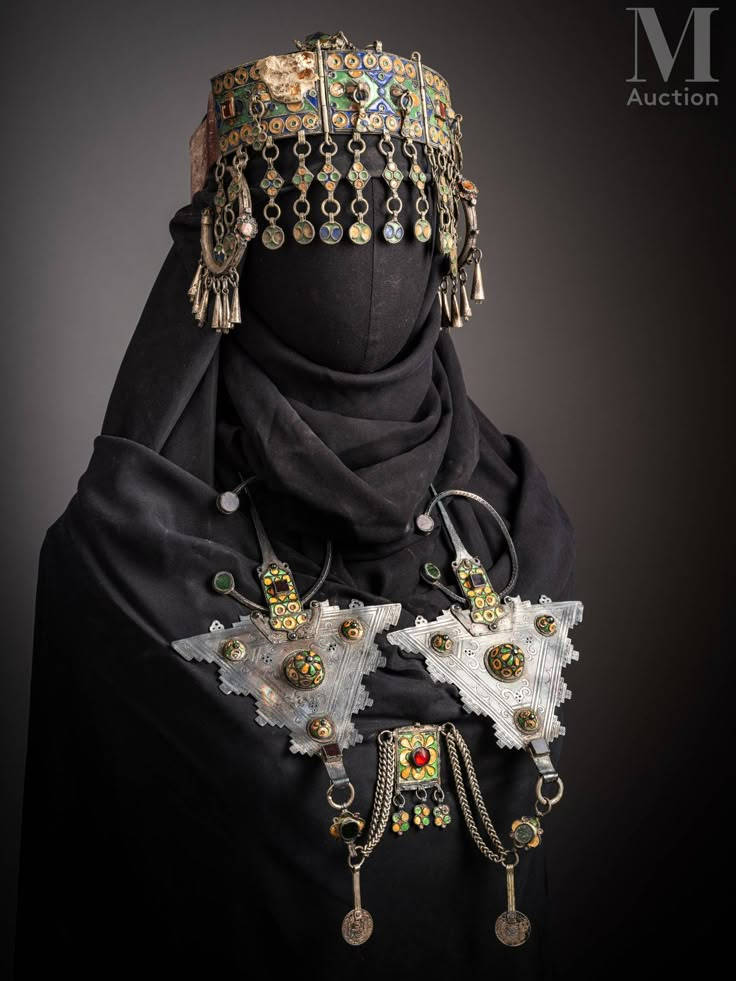
Beading Around the World: Northern Africa – Stories in Every Strand
Share
Where Culture and Craft Collide
From the edge of the Sahara to the turquoise waters of the Mediterranean, Northern Africa has long told its stories in beads. These pieces are more than adornment—they’re maps of lineage, protection, and power.

Northern Africa: Threads of Identity, Echoes of Ancients
Northern Africa isn't just a geographical region—it’s a confluence of civilizations, trade routes, and stories told through textiles, metals, and beads. From the coastal markets of Morocco to the desert tribes of the Sahara, beadwork in Northern Africa is as ancient as the pyramids and as vibrant as a Marrakech bazaar.
Historical Threads: Beads Before Borders
The roots of Northern African beadwork stretch back thousands of years. Archaeological finds in Egypt reveal beaded collars and net dresses worn by queens and priestesses. In regions spanning Algeria, Libya, Tunisia, Morocco, Sudan, and Egypt, beads were more than ornament—they were currency, spiritual amulets, and social markers.
- Egyptian Faience Beads – These glazed ceramic beads were symbols of rebirth and often accompanied the deceased into the afterlife.
- Berber Silver Beadwork – In Morocco and Algeria, the Imazighen (Berber) women wore beaded jewelry not only to beautify but to protect from the evil eye.
- Tuareg Traditions – Nomadic desert dwellers like the Tuareg incorporated glass and metal beads in protective jewelry and headdresses.

Faience





Cultural Significance: Not Just Pretty Beads
Beads in Northern Africa are rarely “just decoration.” They whisper stories of spiritual belief, marital status, fertility, protection, and clan identity.
✨ Morocco – Beaded Layers of Life
In Moroccan culture, particularly among Amazigh women, heavy necklaces of beads, coins, coral, amber, and shells signified a woman’s family heritage. Jewelry was often passed down through generations and used in barter during hard times.
✨ Egypt – Symbols in Every Strand
Ankh symbols, scarabs, lotus flowers—each shaped bead or amulet in Ancient Egyptian adornment had a purpose. Beads were embedded in linen wrappings of the dead and worn in colorful pectorals by royalty.
✨ Sudan and the Nubian Connection
In Nubian communities of Southern Egypt and Sudan, beadwork is used in festival costumes and henna ceremonies. Modern styles reflect a mix of sub-Saharan African influences and Islamic artistry.




Materials and Motifs: What Are They Using?
- Amber & Resin – Signify healing and status. Often seen in Berber traditions.
- Cowrie Shells – Symbol of fertility and divine feminine energy.
- Faience & Glass Beads – Lightweight, colorful, and sacred in Egypt.
- Silver – Tuareg artisans favor silver for its protective qualities.
- Leather – Used as a base or thread, especially in camel-based cultures.

Techniques Still in Practice Today
While some traditions are passed down informally, others are preserved through cooperatives and artisan guilds.
- Bead Embroidery – Seen in wedding textiles, bags, and tunics.
- Loom Beading – Used in patterned belts and headbands.
- Wire-wrapped Amulets – Common in Tuareg and Saharan designs.
Contemporary Artisans + Cooperatives
Supporting these groups keeps the tradition alive:
- Tamesloht Artisan Cooperative (Morocco) – Women’s bead and textile work.
- Siwa Oasis Jewelry Makers (Egypt) – Reviving ancient oases-inspired designs.
- Tuareg Silversmith Guilds (Niger/Algeria border) – Creating sacred bead and silver combinations.
Planning a Bead Lover’s Trip to Northern Africa?
Must-see stops:
- Khan el-Khalili Market, Cairo – Hunt for antique beads and raw materials.
- Essaouira Medina, Morocco – Artisan shops with tribal jewelry.
- Omdurman Souk, Sudan – Cultural immersion and beadwork booths.
📍 Pro Tip: Pack light but bring bubble wrap for souvenirs.
Northern Africa in Modern Beadwork
Contemporary designers worldwide now echo North African styles. Look for:
- Turquoise, lapis, and coral color palettes.
- Tassels, stacked layers, and pendants.
- Amulet-inspired centerpieces and crescent moons.

